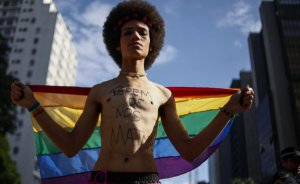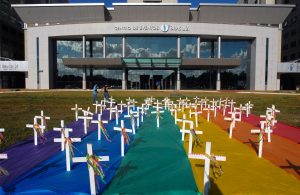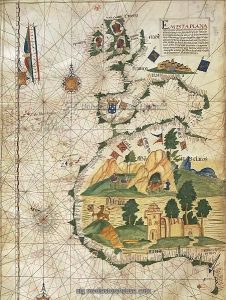For my research project, I intend to look at the effect of neoliberal economic policies on Brazil’s economy and politics domestic and abroad. In the 20th century, there were countless interventions by foreign and domestic entities, that have exploited Brazilians and their land. My main goal is to see the long lasting effects of programs such as the Washington Consensus that have put Brazil on the global map as a economic powerhouse, and how they have simultaneously hurt the average Brazilian.
In this report I want to focus on the economic sector in Brazil. I want to see how Brazil is doing economically, at the macro-level and the micro-level domestic and abroad as a result of neo-liberal policies implemented in the 20th century. This report will look at how these changes to Brazil have affected the everyday life of common people in Brazil and the shift of the status quo for people living in poverty. The economic report would mostly look at the foreign direct investment in Brazil from outside nations and policies used by the Washington Consensus in the 1980s in Latin America, specifically looking at Brazil.
I also want to see how these policies have changed Brazil’s political atmosphere and the nature of Brazilian democracy. I want to see if these economic policies have altered the integrity of Brazilian democracy. I want to investigate and find out if the governmental institutional bodies of Brazil doing a good job of holding the Brazilian government accountable? Is there horizontal and vertical accountability, and are there restriction of outsider influence on free and fair elections?
I think it is remarkable important to understand neo-liberalism and its effect on Brazil. Understanding this history, can help us understand Brazil today and its movement forward because these policies are still prominent today. I also believe that understanding this contemporary and recent history is key to understanding Brazil’s history of exploitation. I see several parallels with the indirect exploitation of outsiders today with the outsiders who already directly exploited Brazil centuries ago.
Primary Sources –
Hewlett, Sylvia Ann. “The Dynamics of Economic Imperialism: The Role of Foreign Direct Investment in Brazil.” Latin American Perspectives 2, no. 1 (1975): 136-48. http://www.jstor.org/stable/2633419.
http://www.iisd.org/pdf/2004/investment_country_report_brazil.pdf
https://piie.com/publications/papers/williamson0904-2.pdf
Secondary Sources –
Ahumada, Consuelo, and Christina W. Andrews. “The Impact of Globalization on Latin American States: The Cases of Brazil and Colombia.” Administrative Theory & Praxis 20, no. 4 (1998): 452-67. http://www.jstor.org/stable/25611309.
Amann, Edmund, and Werner Baer. “Neoliberalism and Its Consequences in Brazil.” Journal of Latin American Studies 34, no. 4 (2002): 945-59. http://www.jstor.org/stable/3875728.
Roxborough, Ian. “Neo-Liberalism in Latin America: Limits and Alternatives.” Third World Quarterly 13, no. 3 (1992): 421-40. http://www.jstor.org/stable/3992194.
SACHS, IGNACY. “Quo Vadis, Brazil?” In Brazil: A Century of Change, edited by Sachs Ignacy, Wilheim Jorge, and Pinheiro Paulo Sérgio, by Anderson Robert N. and Dávila Jerry, 332-44. University of North Carolina Press, 2009. http://www.jstor.org/stable/10.5149/9780807894118_sachs.19.




